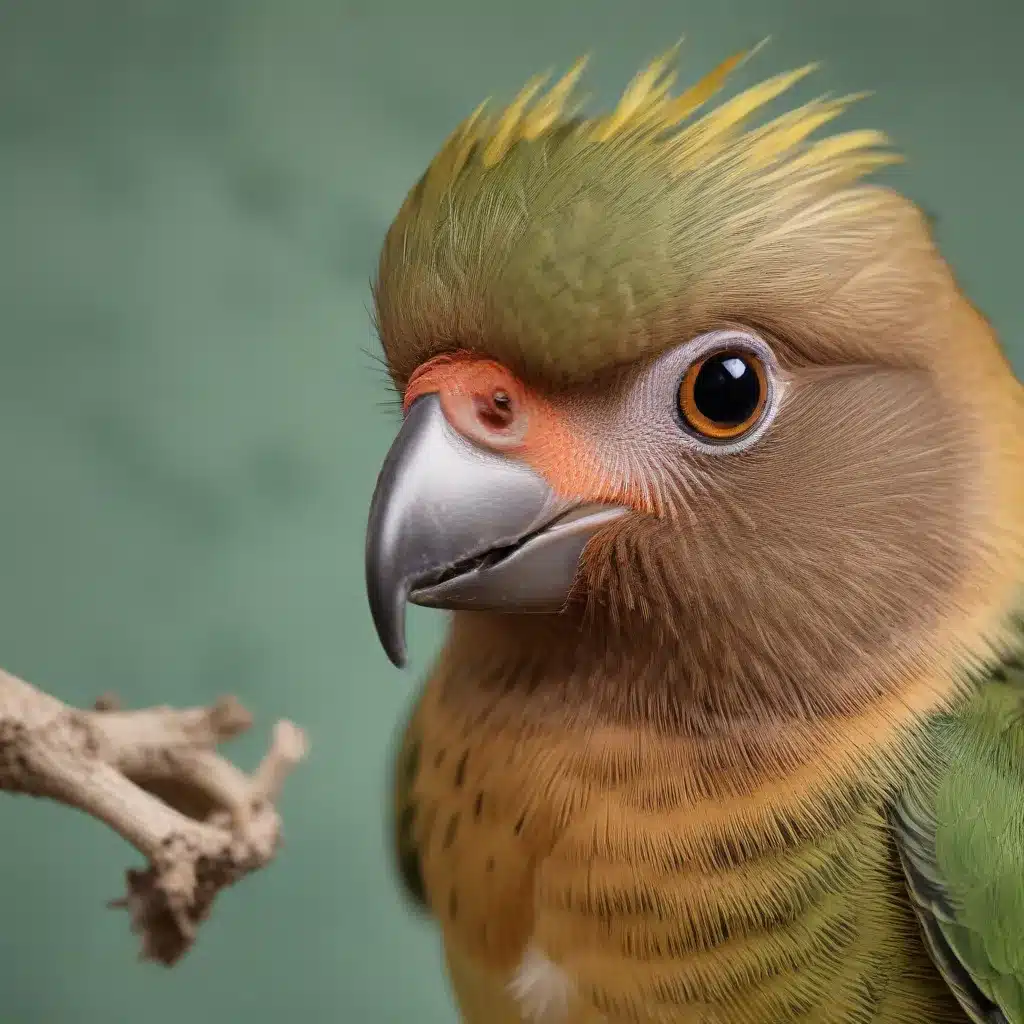
Avian Cognitive Abilities
Birds have long been recognized as highly intelligent creatures, exhibiting a remarkable capacity for problem-solving, memory, and complex social behaviors. Their neuroanatomical adaptations and behavioral indicators point to a sophisticated cognitive function that is only now being fully appreciated.
Cognitive Function in Birds
Avian brains, while differing in structure from their mammalian counterparts, display a remarkable capacity for higher-order cognition. The avian pallium, for example, is analogous to the mammalian neocortex, responsible for complex information processing and decision-making. Birds have been found to outperform many mammals on various cognitive tasks, such as spatial memory, tool use, and social intelligence.
Neuroanatomical Adaptations
One of the key factors contributing to avian cognitive prowess is the unique structure of their brains. Unlike mammals, birds possess a disproportionately large and highly developed telencephalon, the forebrain region responsible for cognitive functions. This neural architecture allows birds to excel in areas like problem-solving, flexible learning, and innovative behavior.
Behavioral Indicators of Cognition
Observing the behaviors of trained birds can provide valuable insights into their cognitive abilities. Behaviors such as tool use, social learning, episodic-like memory, and the ability to solve novel problems all point to a sophisticated level of intelligence. Careful monitoring and documentation of these behaviors can help avian caretakers better understand the cognitive potential of their feathered companions.
Enrichment Strategies for Captive Birds
Recognizing the cognitive complexity of birds, it is essential to provide them with appropriate environmental stimulation and training opportunities to ensure their well-being and promote optimal cognitive development.
Environmental Complexity
Creating a stimulating and dynamic environment is crucial for captive birds. This can be achieved by introducing a variety of perches, foraging opportunities, and novel objects that challenge the birds’ problem-solving skills. Regularly rearranging the habitat, introducing new toys, and providing varied substrates can all contribute to an enriched environment that encourages cognitive engagement.
Cognitive Training Protocols
Positive reinforcement-based training is a powerful tool for enhancing cognitive stimulation in birds. By teaching new behaviors and problem-solving tasks, caretakers can engage the birds’ mental faculties and foster a strong bond. Techniques such as target training, clicker training, and the use of puzzle feeders can all be effective in challenging the birds’ cognitive abilities and promoting problem-solving skills.
Evaluating Skill Improvement
Monitoring the progress of trained birds is essential for assessing the efficacy of cognitive enrichment efforts. Carefully documenting the birds’ performance on various tasks, measuring their problem-solving abilities, and observing their behavioral changes can provide valuable insights into the impact of the training program. Regularly reviewing and adjusting the training protocols can help ensure continued cognitive development and engagement.
Comparative Cognition in Avian Species
While birds share many cognitive similarities, there are also notable differences in the cognitive abilities and problem-solving strategies observed across various avian species.
Differences Across Taxa
Parrots, corvids, and birds of prey are particularly renowned for their advanced cognitive abilities, often outperforming other avian species on a range of tasks. These differences can be attributed to factors such as ecological adaptations, social complexity, and the evolutionary pressures that have shaped the cognitive development of each species.
Factors Influencing Cognitive Performance
Factors like age, sex, and individual personality can also play a role in the cognitive performance of captive birds. Understanding these individual differences can help caretakers tailor their enrichment and training strategies to meet the unique needs and preferences of each bird, ensuring optimal cognitive stimulation and well-being.
Applications in Conservation
Insights gained from the study of avian cognition can have valuable applications in the field of conservation. Assessing the cognitive abilities of endangered species can inform captive breeding programs, habitat management strategies, and reintroduction efforts, ultimately improving the chances of successful conservation outcomes.
Implications for Avian Welfare and Management
The cognitive abilities of birds have far-reaching implications for their overall well-being and the practices employed in their captive management.
Physiological Benefits of Cognitive Stimulation
Providing cognitive stimulation and problem-solving opportunities for captive birds has been shown to have numerous physiological benefits, including reduced stress levels, improved immune function, and enhanced overall health. By engaging the birds’ mental faculties, caretakers can promote the well-being of their feathered companions and help prevent the development of behavioral issues.
Improving Captive Care Practices
Understanding the cognitive needs of birds can lead to significant improvements in captive care practices. From the design of enriched environments to the implementation of positive reinforcement-based training programs, these insights can help ensure that the birds’ mental and physical needs are adequately met, ultimately enhancing their quality of life.
Cognitive Enrichment Considerations
When developing cognitive enrichment strategies for captive birds, it is essential to consider factors such as species-specific needs, individual preferences, and the unique challenges posed by each bird’s environment. A personalized and dynamic approach to cognitive stimulation can help maximize the benefits and ensure the long-term well-being of the birds under our care.
As avian caretakers, it is our responsibility to understand and cater to the cognitive needs of our feathered companions. By embracing the principles of environmental complexity, positive reinforcement training, and a deep appreciation for the remarkable cognitive abilities of birds, we can foster an enriching and rewarding experience for both the birds and ourselves. The journey of enhancing cognitive stimulation and problem-solving skills in trained birds is not only a fascinating one but also a crucial aspect of providing the best possible care and ensuring the overall well-being of these remarkable creatures.


